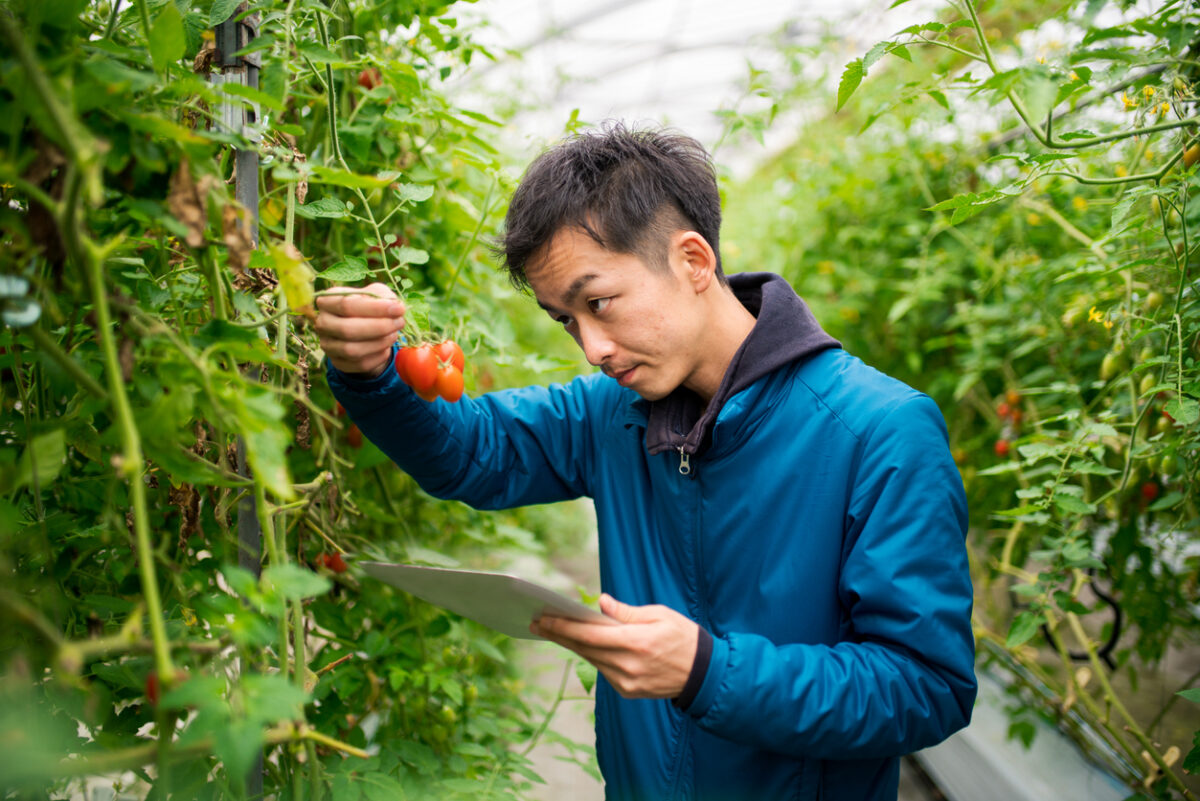Green Jobs: what does a Soil Nutrient Researcher do?

It is of growing concern that soil around the world is being degraded. Poor soil quality spells disaster on all fronts – when the earth is degraded, it loses its ability to support both humans and animals. As a Soil Nutrient Researcher, your job is to research the ground below to find ways to nourish it.
Unfortunately, the food industry is a huge contributor to soil degradation. Farmers’ need to continuously provide food means soil is often drained of its nutrients and damaged by harsh chemicals. However, this does not mean that agriculture cannot be part of a solution.
Grace Kangara is a Soil Scientist focussed on climate- and nutrient-smart agriculture at Rothamsted Research’s Department of Sustainable Soils and Crops. She tells Food Matters Live that one of the highlights of her role in soil nutrient research is working both with smallholder farms and other scientists.
“I became a Soil Scientist as I am very passionate about research and publishing my work,” she says. Grace adds that that a career in this area can see you working in “research, fertiliser and seed sectors, working with farmers, policy makers, Extension Advisory Boards and with students – the list is endless.”
People in this role can work both in the public and private sector – but regardless of your employer, above all else, they must be comfortable with getting muddy when the situation calls for it!
What are the responsibilities?
- Carry out field work, including collecting and categorising sample across a variety of agricultural environments
- Conduct lab research
- Produce reports related to findings for multiple potential audiences
- Interpret others’ findings, collate data and offer problem solving ideas when needed
- Peer-review others’ work
- Present findings in person, likely to colleagues, peers or other stakeholders
- Attend conferences to stay connected with others’ research
- Apply for funding grants, or tender for work project
Who might your employers be?
Any business or organisation which is in some way related to agriculture and has a stake when it comes to soil quality. As a result, being a Soil Nutrient Researcher could see you working for a plethora of different employers.
Included in this mix could be scientific research institutions (usually situated within universities); private companies that deal with soil and agriculture, such as fertiliser companies or food producers and manufacturers; government agencies like Defra; environmental and conservation non-profits; and environmental consultancy agencies.
What qualifications do you need?
A degree in a field related to environmental science is usually a good way to start your career in soil nutrient research, but as Grace explains, even an initial education in something more general like geography, maths, chemistry or biology provides a great basis.
Why not begin your research with these:
- Plant and Soil Science BSc, University of Aberdeen
- Environmental Science BSc, University of Leeds
- Environmental Sustainability Science BSc, Cardiff University
- Agriculture with Crop Management (with placement) BSc, Harper Adams University
Grace’s career is informed by her years studying at the University of Zimbabwe, where she completed her Bachelors, Master’s and PhD. Additionally, she has completed several field and industrial placements.
The importance of field placements and experience cannot be overstated, and it is encouraged wherever possible. Doing so allows you to expand your knowledge of the discipline beyond the classroom, and gain experience even before entering the job market.
As with so many career pathways, a university degree is not the only way in, though. Apprenticeships in environment-adjacent roles are becoming increasingly popular, and could stand you in good stead.
The Society for the Environment has developed it Level 6 Environmental Practitioner Apprenticeship to help participants eventually progress on to a range of specialisms, including land contamination, ecology and waste management.
The Science Council is also a worthwhile resource for people seeking out apprenticeship pathways. The organisation offers plenty of information regarding science apprenticeships across all levels (from foundation to higher and degree apprenticeships), as well as those for science technician roles.
What is the salary like?
According to Glassdoor, general Soil Scientist salaries usually begin around £24,000 – which is around average for junior science roles across the board. The website says the average pay for the job is around £36,000. At the top end of the experience scale, research suggests you could be on upwards of £55,000 a year.
Where will you be working?
Because there are many different facets to your role as a Soil Nutrient Researcher, you could find yourself working in several different places. Most commonly, you’ll be working either onsite at an agriculture facility or in a lab processing samples. However you may also find yourself in an office while writing up findings, in a classroom (if you’ve chosen to follow an academic route) or even at conferences and other meet-ups.
What is career progression like?
As with many science roles, career progression is common as a Soil Nutrient Researcher. You’ll likely begin your career as a lab or research assistant, or a junior scientist. From here, it is possible to become a more senior scientist within your company, or a lab, department or course leader. Additionally, many organisations offer continuous professional development courses, so you can continue to progress your education as you move forward.
As you gain more experience, you may also wish to move into consultancy work. In this case, you’d likely be your own boss, and get to choose the clients and companies you work with to support their work.
One element of the role which Grace stresses is that challenges are opportunities – in this vein, sometimes research avenues do not always work out but there is always something to be learned which can contribute to your progression. This is particularly true of funding, she says.
“Biding for funds is very competitive. While I have had my fair share of successes and failures regarding securing funds, I still write each proposal as if its my first one and always look forward to that positive response. The key is to put in a great amount of effort, seeking guidance, timeous proposal preparation and of course, determination and resilience.”
Is there demand for this role?
The situation facing the world’s soil is challenging, and it will be well-experienced, knowledgeable people working within soil nutrient research that provide the solution. Given the fact so many in the food industry have a stake in this issue being resolved, there is little doubt this role will continue to be very important into the future.








